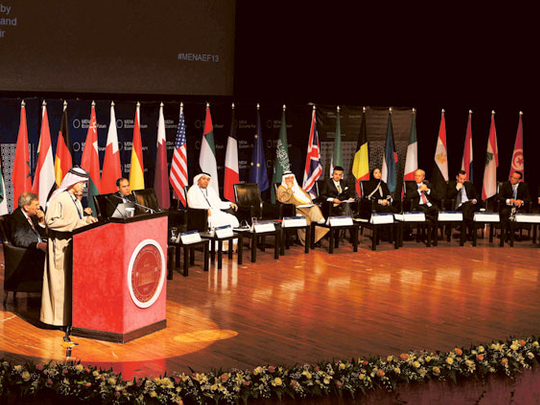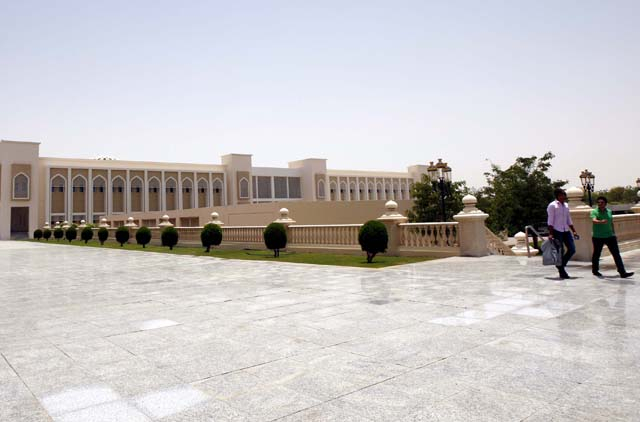
Dubai: The Middle East needs $4.3 trillion (Dh15.75 trillion) to build infrastructure to accelerate economic growth and help create jobs for 50 million in the next 15 years, experts at the Middle East and North Africa (Mena) Economic Forum said at a panel discussion.
Middle East, with a population of about 400 million, hosts 60 per cent of world’s oil wealth and 40 per cent of gas reserves. Yet 23 per cent of the population lives with less than $2 (Dh7.3) per day. Its population growth of 2.2 per cent is double the global population growth, according to the World Bank.
While most expert panelists said, the region should liberalise the investment laws to open doors for foreign direct investment (FDI), others say, education and skill development is crucial for the overall social development and economic growth of the region.
“We have many good success stories and we could build on those successes and replicate in where it is not there,” Saif Al Ghafli, Chief Executive of Al Hosn Gas, told at the forum, held at the American University of Sharjah.
“With $4.3 trillion investment needed to develop infrastructure, countries in the Middle East and North Africa (MENA) could look at our successes in developing infrastructure in the GCC and take lessons from these projects.”
Salah Al Shamsi, Chairman of Liwa Holding, said, “Before seeking investment, we should make our homes tidy. We have funds, facilities in place. But we need to ask for help — we hesitate to seek help.” He was referring to countries affected by the Arab Spring, for not asking for help to the developed part of the Middle East.
Khaldoon Rashid Tabari, Vice-Chairman and Chief Executive Officer of Drake and Scull International, said, the Arab Spring countries or the Middle Eastern countries should not look at Europe for help. “I do not see Europe as a fund provider of investor any more, given the fact that its hands are full of challenges. I think we should look inwards for solution. We have plenty of wealth, funds and know-how within the region from which other countries in need could benefit.”
However, the region does not have banks to fund small and medium enterprises (SMEs), he said, which needs to change.
“We needs banks to fund SMEs so that they could create jobs,” he said.
But before that, the region should invest enough in education and healthcare, says Faizal Kottikollon, Chairman of KEF Holdings. Faizal, who founded one of the world’s top three foundries in Sharjah, sold it to Tyco and Pentair for $400 million last year — which he is investing in India and the UAE in education, health care and other economic ventures.
“One of the key problems faced by the region is the education and healthcare for the future and the well-being of the people of the Middle East,” Kottikollon says. “Investment in education and health care is crucial to reduce income inequality and poverty in the Middle East. “It will ensure good health, well being and develop skilled manpower who will drive economic growth.
“If we can’t take care of the people at the bottom of the pyramid, then we will have problems down the line,” he said.
Varouj Nerguizian, Chief Executive of Bank of Sharjah, said, “We need to develop mega banks for the Middle East, who will lend to support the SMEs in the region, that will eventually create employment.”
Jean-Louis Reiffers, President of Mediterranean Institute, France, said, “We need to identify new overseas investment opportunities. We need to better focus to meet the needs of the people,”
He said, the investments in the past were based on short-term and speculation in nature and did not create enough employment, neither did they develop technologies.
“We need new investment in SMEs. Investments in large infrastructure projects have historically been done by the governments. However, this need to change in favour of public-private partnerships which is the way forward,” he said.













